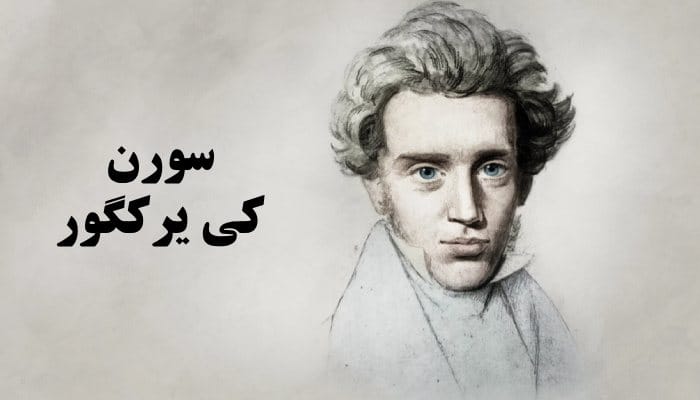
Blog
Soren Kierkegaard

Søren Kierkegaard, the 19th-century Danish philosopher, is recognized as one of the founders of existential philosophy. In his works, he deeply and intricately explores the dimensions of human existence, choice, and freedom.
One of the central concepts in Kierkegaard’s thought is “self-governance”—the individual’s ability to choose and determine their own destiny. For Kierkegaard, self-governance is not only about freedom from social and cultural constraints, but also about a profound understanding of personal responsibility.
He believed that each person must independently, and with full awareness of the consequences, determine their own path in life. This idea stands in opposition to systems of thought that view humans as passive or powerless beings, merely shaped by external forces.
By emphasizing individual choice and existential crises, Kierkegaard reminds us that self-governance is not merely a right, but a deep human responsibility—one that requires the individual to confront both themselves and the world around them.
فهرست عناوین
ToggleBiography of Søren Kierkegaard
Søren Kierkegaard was born on May 5, 1813, in Copenhagen, Denmark. He came from a wealthy and religious family, and his father, Michael Kierkegaard, was a Protestant pastor. His father’s religious and philosophical influence played a significant role in shaping Kierkegaard’s life and thought.
Kierkegaard began his studies at the University of Copenhagen, initially focusing on theology and philosophy. While he was initially influenced by philosophers such as Hegel, he quickly distanced himself from their ideas and took a critical stance toward Hegelian philosophy and the grand philosophical systems of his time.
In 1843, Kierkegaard published his first major work, Fear and Trembling, in which he examined the concept of faith and the conflict between reason and belief. This book is considered one of the most important philosophical texts of the 19th century. He further explored existential themes such as freedom, choice, and anxiety in other notable works, including The Concept of Anxiety and Sickness Unto Death.
Kierkegaard is regarded as one of the founders of existentialism. He placed strong emphasis on individuality, personal choice, and moral responsibility. He believed that each person must find meaning and purpose for themselves—a process that inevitably involves confronting anxiety and uncertainty.

Søren Kierkegaard’s Personal Life
Kierkegaard’s personal life was also complex. He never married, but he had a romantic relationship with Regine Olsen, which ended due to personal and social difficulties. This emotional breakup had a profound impact on his works.
Søren Kierkegaard passed away on November 11, 1855, in Copenhagen. After his death, his writings gradually gained recognition and went on to have a deep influence on modern philosophy, psychology, and literature. Today, he is regarded as one of the most important philosophers in history, and his works continue to be studied and discussed in philosophical, religious, and existential contexts.
In the remainder of this article, we intend to further examine the concept of self-government from the perspective of this great philosopher.
Suggested article: Approaches
Self-Governance and Its Importance in Human Life
Humans, as unique and unrepeatable beings, each follow a distinct path in life. This individuality is not only true for ourselves but applies to all people. Each person, shaped by their experiences and life circumstances, must follow their own principles and rules.
The central theme of this discussion is the concept of self-governance in human life. Self-governance means an individual’s ability to control and direct their own life. People who are capable of making independent and responsible decisions often lead more fulfilling lives. This kind of life allows individuals to act according to their personal values and goals, ultimately resulting in greater satisfaction.
On the other hand, if a person lives under the influence of others—making decisions based on the opinions and desires of those around them—they might experience a more comfortable life, but not necessarily a complete or meaningful one. Such individuals may reach the end of their lives with a sense of dissatisfaction, burdened by unfulfilled dreams and goals. As philosophers suggest, a life lived under the sway of others is far less valuable than a self-directed life.
Thus, the importance of self-governance in human life is undeniable. By strengthening this trait, individuals can move toward a life that is more meaningful and satisfying.
Understanding one’s personal identity is not something limited to a particular age. In fact, the search for identity begins whenever a person starts to seek self-understanding. If someone is heavily influenced by social systems, family, or environment, they may lack the motivation to think independently. Such a life, which may seem simpler or more convenient on the surface, is often lacking in genuine fulfillment, and the individual may feel a deep sense of discontent.
But the question arises: Why do some people choose this kind of life? Why do many people give up the search for a better, more fulfilling life? Those who pursue a meaningful life may face questions and challenges from others, who wonder why they don’t want to live like everyone else.

The Cause of a Life Without Self-Governance
You might think that lives in which independent thinking is not encouraged are often unrecognized and that this lack of recognition can lead to feelings of isolation and loneliness. However, lives that are dependent on others and lack self-governance may receive more social encouragement. In such cases, individuals may feel that they are not alone and that they enjoy greater social support, which can increase their sense of comfort and satisfaction with life.
To better understand the issue, we can look at a simple yet profound example. Imagine you’re about to eat a meal. Do you pick up a spoon and fork? If your answer is, “Because everyone else does it,” this reflects a lack of independent thinking. Instead of analyzing or exploring other possibilities, you’ve simply followed the behavior of others.
But if you say, “I’ve done research and evaluated 27 different ways of eating, and this method is the most convenient and hygienic,” your response shows intellectual independence. In this case, you’ve arrived at a logical conclusion through critical thinking and analysis. This example demonstrates how one can follow the Socratic method of inquiry. Socrates emphasized the importance of questioning and seeking truth. By applying this method, we can achieve deeper understanding and move beyond superficial thinking patterns. Therefore, intellectual independence is not only a sign of mental maturity, but also a tool for making conscious and rational decisions.
Suggested article: Dependent Personality Disorder
Similarly, when someone is asked about their choice of clothing, different types of responses may emerge. For instance, if a person says they chose their outfit simply because others wear the same, this indicates a lack of independent decision-making. However, if the person explains that the clothing suits them and aligns with their role or profession, the answer reflects rationality and critical thinking. Here, the individual is not only aware of their choice but has also taken into account personal and professional criteria, making a decision based on them. This type of rational thinking can be observed in other areas of life as well, and indicates a reasonable and logical approach to challenges and decisions.
Belonging to a group and receiving social validation brings a pleasant sense of comfort and a feeling of safety. This perceived safety may lead someone to give up parts of their individual identity in order to preserve that social security. In other words, a person may sacrifice personal identity and uniqueness to maintain a sense of social security.
The concepts of security and individuality are distinct. The stronger one’s sense of individuality, the more likely it is that their sense of social security will be fragile. This phenomenon is influenced by various factors, including the culture and social structure of the society in which a person lives.
One of the key indicators for understanding this phenomenon is the concept of “post-midlife reflection.” In essence, once we pass the midpoint of our lives and begin to decline, we often gain a clearer understanding of how we have lived, and the decisions we’ve made.

Self-Governance from a Religious and Mystical Perspective
In religious and mystical literature, it is emphasized that when an individual finds their own path, they should not fear solitude. This solitude is not a sign of weakness; rather, it is an opportunity for growth and deeper self-understanding. A life in which a person sacrifices their individuality and simply follows the crowd may initially seem enjoyable, but ultimately, such a life lacks depth and meaning.
For this reason, religious and mystical texts stress the importance of “a good end” (or a favorable outcome). This concept highlights the necessity of paying attention to the consequences of our choices and pursuing a path that leads to personal growth and the realization of true goals. Living within the group and under the influence of others may seem easier, but in the end, only conscious and independent choices can lead to true and lasting satisfaction.
Suggested article: Self-Love
The Individual Life
The individual life is one of the key concepts in the works of Søren Kierkegaard, the 19th-century Danish philosopher. He believes that choosing one’s own life path, although initially accompanied by many challenges and difficulties, can ultimately lead to a deep and meaningful experience. Kierkegaard emphasizes that over time and through confronting these challenges, the individual gains a better understanding of themselves and their identity. He argues that the individual life allows a person to achieve greater inner richness through self-awareness and reflection.
This process not only strengthens the firmness of one’s steps but also helps the individual to deeply comprehend the concept of self-love. In the end, Kierkegaard, by stating that “a happy ending awaits you,” points to the hope and motivation that come from choosing an individual life.
برای مشاوره رایگان و رزرو وقت (یا اگر تماس گرفتید و قادر به پاسخگویی نبودیم) شماره تماس خود را وارد کنید. ما به زودی با شما تماس می گیریم!



